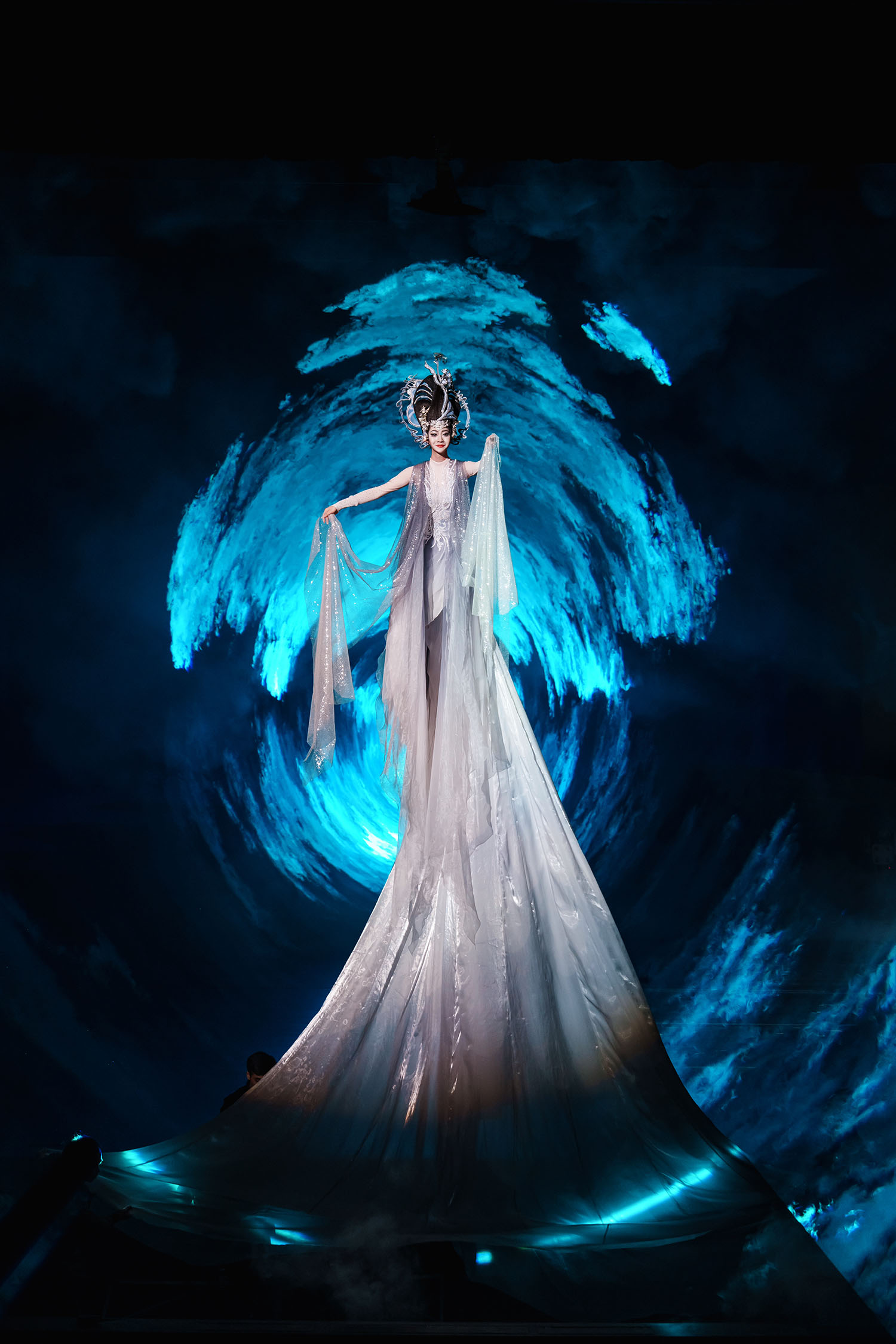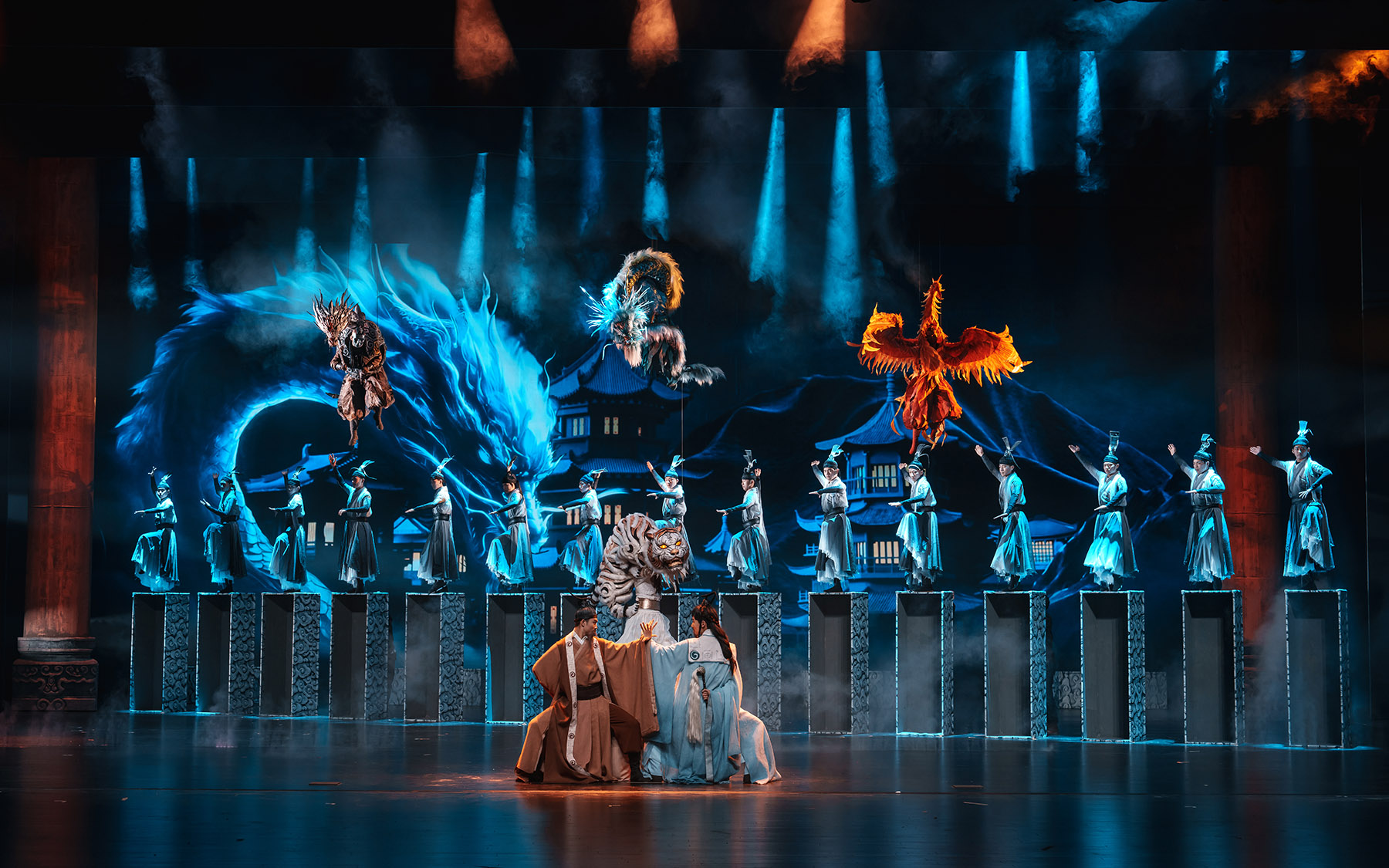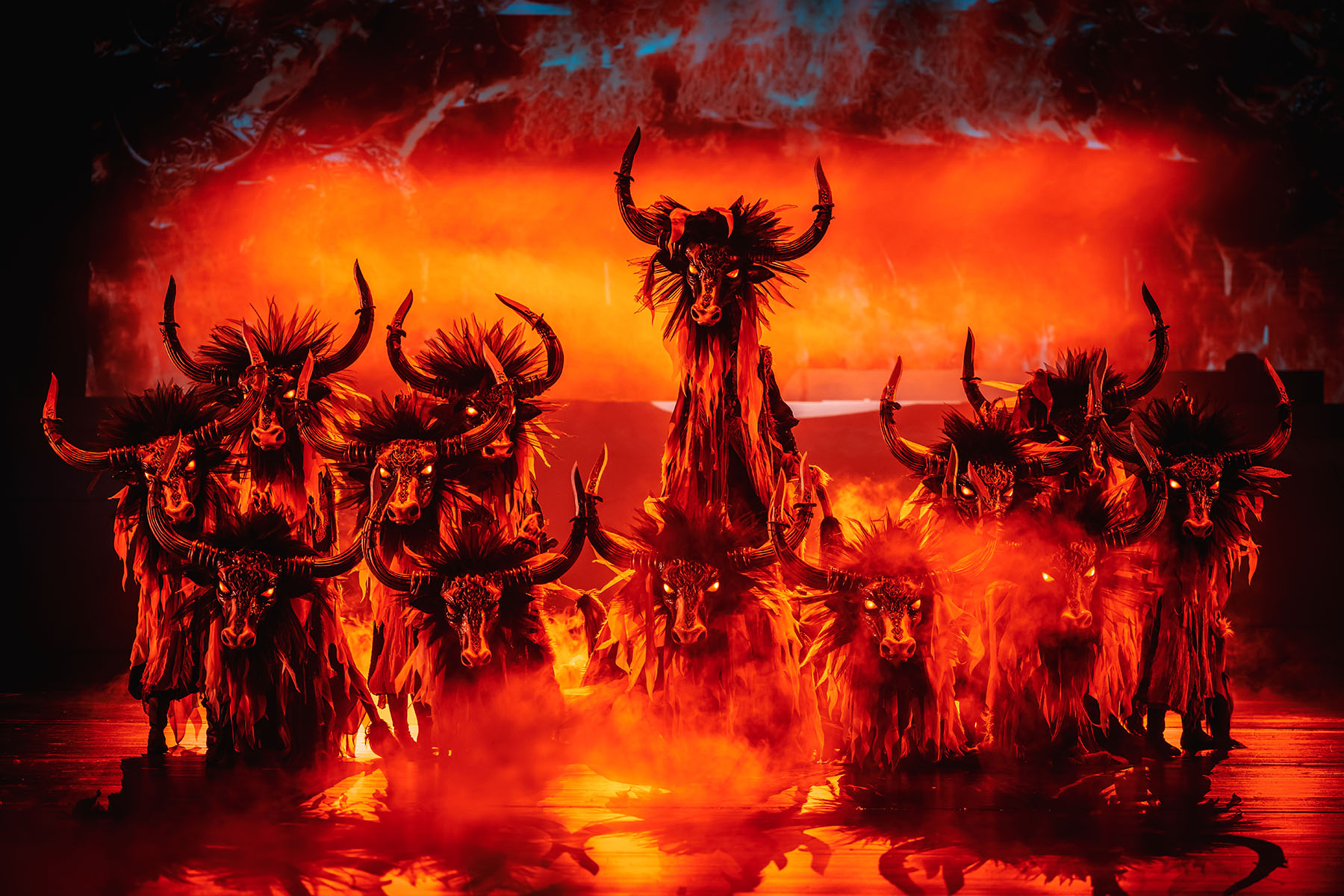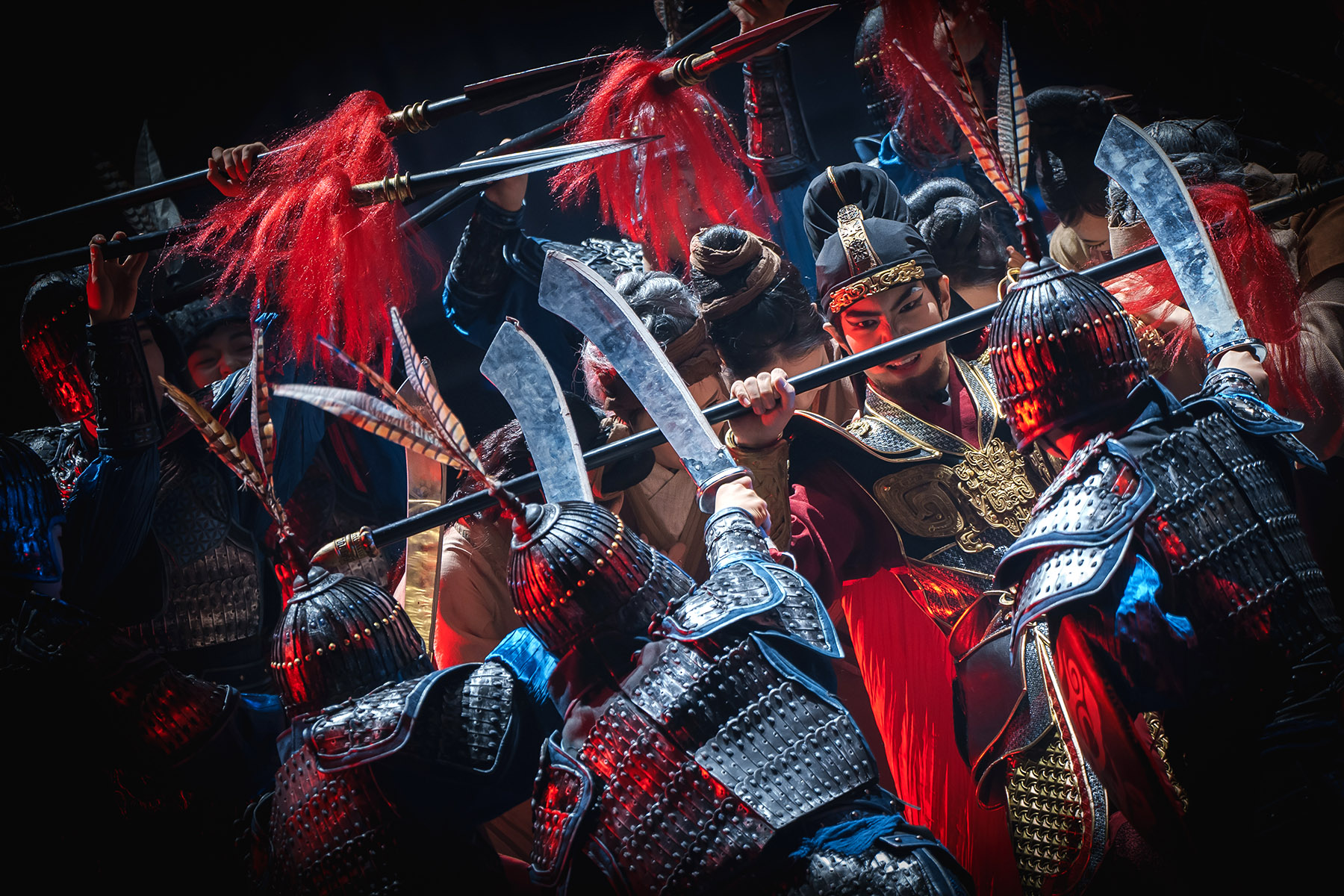Stage production celebrates Langzhong's relaxed charm and historical importance, Chen Nan reports.

Langzhong, a city nestled in the northeastern corner of Sichuan province, has long held a revered place in China's cultural and historical landscape. Known for its heritage, ancient architecture and natural beauty, Langzhong's most significant claim to fame is its pivotal role in the creation of the Spring Festival — one of the country's most important holidays.
Langzhong is also known as Langyuan, a name that suggests a place where gods reside.
The city's connection to the festival is the inspiration for a new stage production, The Mythical Tales of Langyuan, which weaves together history, myth, and modern-day celebrations.
It premiered on Jan 28 and highlights Langzhong's status as home to one of the more traditional Spring Festival celebrations in the country, and its contribution to global cultural heritage, following the festival's recent UNESCO recognition. The show runs until Thursday.
READ MORE: A journey to the west
Langzhong's importance to Chinese New Year can be traced back some two millennia to the Han Dynasty (206 BC-AD 220) and Lao Xiahong, a famous astronomer, who was born in the city. It is said that during his time at the imperial court, Lao was tasked with creating a calendar that would both standardize and predict the annual agricultural and astronomical cycles. Through meticulous observations, he created a new calendar called the Taichuli, which adopted the Xia Dynasty's (c. 21st century-16th century BC) definition of the start of the new year as being the first day of the first month of the Chinese calendar. This day eventually became the cornerstone of what is now known as the Spring Festival.

This moment is given special significance in the production, with scenes evoking ancient astronomy and depicting Lao's groundbreaking work.
The performance, which fuses contemporary theater with traditional storytelling techniques, brings to life the grandeur of the astronomer's calculations and their cultural implications for Chinese society.
"I can still recall the day I arrived in Langzhong. As I walked through its streets, I was impressed by how the city had maintained its ancient charm for centuries. Its historical buildings, temples and scenic landscapes provide the perfect backdrop for festivals," says the show's director, Fu Zhitao, who has been involved in grand galas like the CCTV Spring Festival Gala in 2019 and 2020, and the Silk Road International Arts Festival in 2014.
"I was both captivated and moved by its architecture, customs and culture. Wandering through this ancient city surrounded by mountains and rivers, I was drawn to the warmth and simplicity of its people," he adds. "The birds resting peacefully in the eaves, the lazy, contented cats and dogs lounging by the roadside … Everything felt so touching and warm, and I experienced a long-lost sense of ease and relaxation."
Fu also recalls sitting under a tree, sipping tea from a tea shop, listening to the owner passionately telling the stories of Langzhong.
"I felt as though I had formed a subtle connection with this ancient city. Words, such as 'legend' and 'carefree', flashed through my mind. The legend of Langzhong has created this city's atmosphere, and each of us needs to live a carefree life. In an era where everyone is constantly competing, we all need to find some time to come to Langzhong and just relax, let go of anxiety and pressure, so this carefree ancient city can warm and heal you," he says.

From the sweeping curves of Langzhong's rooftops to its traditional Spring Festival celebration, with its preservation of customs and rituals, such as the traditional dragon and lion dance, the sound of firecrackers filling the air, and the breathtaking displays of paper lanterns illuminating the streets, Fu combines all these elements into the production.
"The new stage production pays homage to these age-old traditions. The audience is invited to immerse themselves in the vibrant atmosphere of the Spring Festival, a dazzling spectacle designed to evoke the energy and excitement of the holiday," he says.
Besides the Spring Festival, Fu has also featured references to the Three Kingdoms (220-280) period when Langzhong played an important role due to its strategic location and connection to prominent figures of the era. Dating back some 2,300 years, the city is also associated with Zhang Fei, a prominent general of the Three Kingdoms period, who defended it for seven years. Today, temples in the city acknowledge the general's contribution.

Qian Qi, who composed the music for the production in a month and a half, also made several visits to Langzhong.
Xiaoyao Ge, or the Song of Freedom, a catchy melody that incorporates memorable elements and is the production's theme song, was performed by Wu Tong.
Qian blended elements of rock, funk, jazz and traditional Chinese music.
ALSO READ: Choreographing cultural classics
"The full soundtrack is approximately 60 minutes. I blended symphonic music, world music, ethnic instruments and electronic music, allowing them to interweave and complement each other," says Qian, a professor from the Department of AI Music and Music Information Technology at the Central Conservatory of Music.
"Xiaoyao Ge is a dynamic piece that fills the audience with energy and strength. I particularly like the song's vibe, which matches the ancient city of Langzhong," says Wu, who is a renowned sheng (free-reed wind instrument) player. "I hope more people will travel to Langzhong and explore it."
Contact the writer at chennan@chinadaily.com.cn


